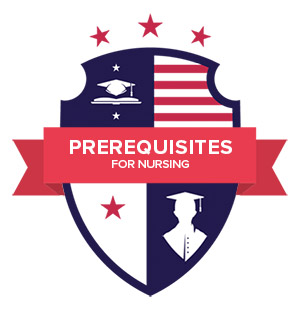 What are the prerequisites for nursing? What can you do not to start preparing to become a nurse? The answers to these questions vary depending on what kind of nurse you want to become. Listed below are some suggested preparations you can take to start your nursing career off the right way.
What are the prerequisites for nursing? What can you do not to start preparing to become a nurse? The answers to these questions vary depending on what kind of nurse you want to become. Listed below are some suggested preparations you can take to start your nursing career off the right way.
Preparing in High School
You can start preparing for your nursing career as early as high school. While you may not be able to start working until after you graduate, you can at least take classes that will put you on the right path for college and your career. Some of the best classes for nursing students in high school include:
- Anatomy
- Physiology
- Biology
- Chemistry
- Health
- Speech (for communicating with patients)
- Nutrition
- Microbiology
- Psychology
You may be able to take college-level courses your junior and senior year of high school to speed up your education after you graduate. Many schools will allow you to take half the day of so you can attend a vocational school or college in your area. There you could take classes that would help you become a certified medical assistant, phlebotomist, or other health specialist while you earn your degree as a nurse.
Prerequisites for Licensed Vocational Nurses
Licensed vocational nurses and licensed practical nurses do not need much training to start working. In fact, some LVNs are able to begin work with nothing more than a high school diploma. In most cases though, an employer will want you to have a certificate, diploma, or associate’s degree in nursing to work in this profession. This training should take one to two years to complete, and it will teach you about the equipment and terminology you will need to use on a daily basis. If you are lucky enough to find an employer who is willing to train you on the job, you can do that as well.
Prerequisites for Registered Nurses
To become a registered nurse, you will need an Associate’s Degree in Nursing (ADN) or a Bachelor of Science in Nursing (BSN). Some specialized RNs will choose to complete a Master of Science in Nursing (MSN) so they can work in specific areas of the field. The ADN program takes about two years to complete, and the BSN takes four years total. The MSN program lasts an average of two years but may take longer than that.
In addition to earning your nursing degree, you will need to prepare to take the NCLEX-RN. This is a national exam for registered nurses that determines whether or not you can get your license. You may want to take courses for NCLEX prep to ensure you have the best chance at getting a high score.
Prerequisites for Advanced Practice Nurses (NPs, CRNAs, and more)
Advanced practice nurses are the highest level of nurses in the healthcare industry. They work as nurse practitioners, nurse midwives, certified registered nurse anesthetists, and more. In order to become an advanced practice nurse, you will need to earn a Master of Science in Nursing or a Doctor of Nursing Practice (DNP). The doctorate degree can take as long as six years to complete after undergraduate school, but it will give you the most knowledge possible for this profession.
The degree requirements for advanced practice nurses vary by state and by position, so you will need to learn what is necessary to work in your desired profession. You will also need to examine which licensure exams you will need to take in order to start work. If you choose to be a nurse practitioner, you may need a physician to supervise your work under a collaborative agreement. Again, this will depend on where you decide to practice.
